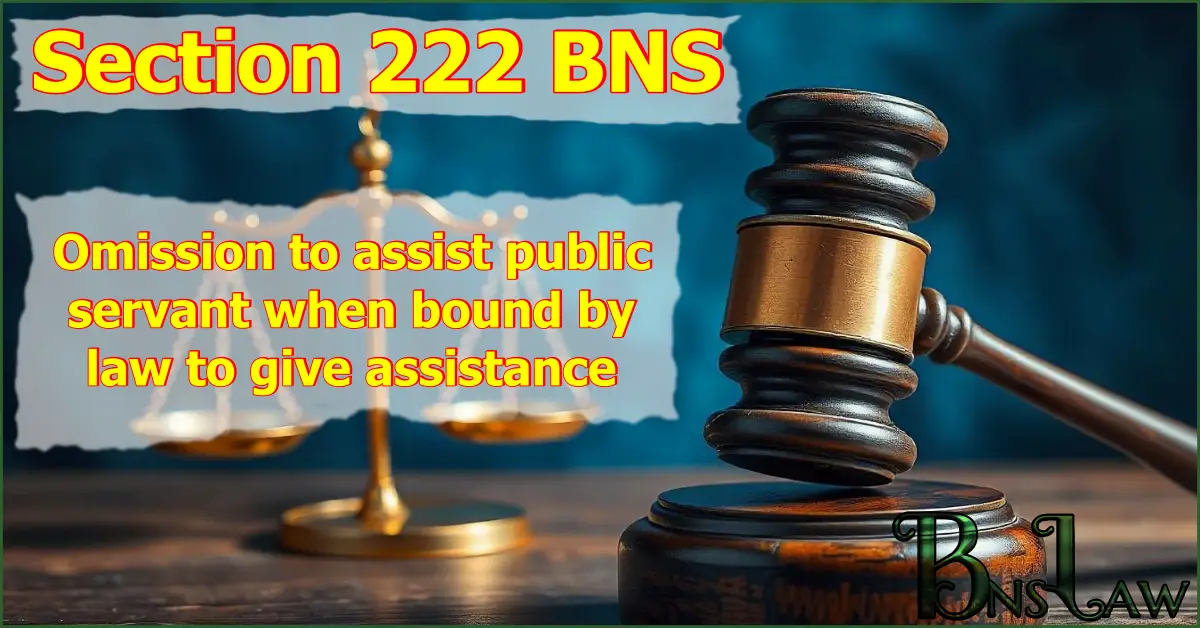Section 222 BNS | BNS 222
Whoever, being bound by law to render or furnish assistance to any public servant in the execution of his public duty, intentionally omits to give such assistance,—
222(a) BNS
shall be punished with simple imprisonment for a term which may extend to one month, or with fine which may extend to two thousand and five hundred rupees, or with both;
222(b) BNS
and where such assistance be demanded of him by a public servant legally competent to make such demand for the purposes of executing any process lawfully issued by a Court or of preventing the commission of an offence, or suppressing a riot, or affray, or of apprehending a person charged with or guilty of an offence, or of having escaped from lawful custody, shall be punished with simple imprisonment for a term which may extend to six months, or with fine which may extend to five thousand rupees, or with both.
READ OTHER SECTIONS OF CHAPTER XIII — OF CONTEMPTS OF THE LAWFUL AUTHORITY OF PUBLIC SERVANTS
FAQs of BNS Section 222
-
222 BNS punishment and fine
Punishment and fine under Section 100 of the BNS—
222(a): Simple imprisonment for 1 month, or fine of 2,500 rupees, or both.
222(b): Simple imprisonment for 6 months, or fine of 5,000 rupees, or both. -
222 BNS cognizable or not
The offence under Section 222(a) and 222(b) of the BNS is non-cognizable.
-
222 BNS bailable or not
The offence under Section 222(a) and 222(b) of the BNS is bailable.
-
222 BNS trial court
Offence specified in Section 222(a) and 222(b) of the BNS is triable by any Magistrate.
Important Points
- Cognizable Offences: These are offences where a police officer can arrest a person without a warrant.
- Non-Cognizable Offences: These are offences where a police officer cannot arrest a person without a warrant.
- Bailable Offences: These are offences where the accused can get bail from the police station itself. All bailable offences are listed in the First Schedule of the Bharatiya Nagarik Suraksha Sanhita (BNSS).
- Non-Bailable Offences: Offences in which bail is not granted directly from the police station but after hearing the case in the court, the judge decides when bail will be granted. All non-bailable offences are listed in the first schedule of the Bharatiya Nagarik Suraksha Sanhita (BNSS).
- In the above FAQ, “trial court” means the court that has jurisdiction to try the offence.
- In the above FAQ, the expression “Magistrate of the first class” and “Any Magistrate” does not include Executive Magistrates.
Read other Sections of the BNS
Reference Link: New Criminal Laws (BNS), Ministry of Home Affairs







